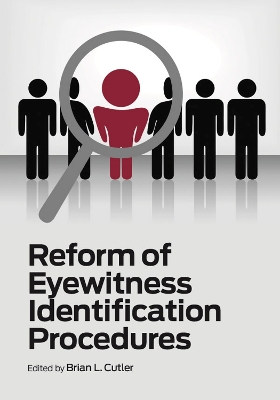In recent decades, nearly 300 U.S. citizens convicted of major felonies have been found innocent and exonerated. Along the way, forensic psychologists have played a key role in efforts to uncover and publicise the systemic issues that contribute to erroneous convictions.
In his previous book, Conviction of the Innocent: Lessons From Psychological Research, Brian Cutler surveyed a wide range of psychological factors contributing to erroneous convictions. Now, in Reform of Eyewitness Identification Procedures, he narrows his focus to the most important single factor underlying many innocent convictions: mistaken eyewitness identifications.
Top researchers in the field of eyewitness research present full reviews of the literature on key issues such asThis book is an important milestone in ongoing efforts to make mistaken convictions a thing of the past.
- the nature and composition of police lineups
- the relative effectiveness of sequential vs. simultaneous lineups
- the importance of double-blind lineup administrations
- the effectiveness of lineups vs. showups
- the slippery nature of eyewitness memory
- In each chapter, authors turn research into practice by providing clear and practical recommendations for effective police and legal reform.
- ISBN13 9781433812835
- Publish Date 15 March 2013
- Publish Status Active
- Publish Country US
- Imprint American Psychological Association
- Format Hardcover
- Pages 232
- Language English
